You’re healthy, right? Think again. Only 3% of Americans engage in behaviors that lead to good health.
Do you think the following habits would enhance your chances of living a long, healthy and productive life?
- Exercising for 2 ½ hours each week
- Maintaining a healthy body weight (BMI under 25)
- Eating at least 5 servings of fruits and vegetables each day
- Not smoking
If you’ve passed the 1st grade, you probably do.
So, why do only 3% of Americans engage in all of these behaviors (based on one study sample)?
Yup, I said 3%.
How can I be invincible?
Will you ever get cancer or heart disease? What about diabetes or high blood pressure? Maybe you’ve already been diagnosed with one (or all) of these conditions.
1 out of 2 people in the U.S. die of either cardiovascular disease or cancer. Last time I checked, that’s half of us.
Oh, and don’t forget about diabetes, booze, cigarettes, and kidney disease (from high blood pressure and high blood sugar). These are what we die from today. And these are highly preventable diseases.
Comparatively, in 1900, some of the major causes of death included influenza, pneumonia, infectious diarrhea and tuberculosis.
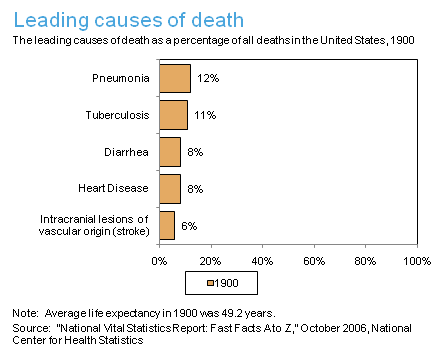
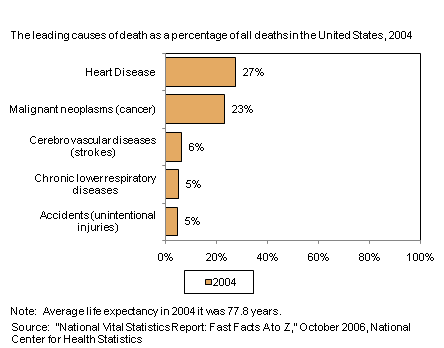
If I’m diagnosed with cancer or cardiovascular disease next week, I won’t be surprised.
I had many childhood years of Cinnamon Toast Crunch, cow’s milk, candy bars and Easy Mac. Then I had my bodybuilding days with loads (seriously, loads) of cheap chicken, steak and milk. And even now – I eat desserts with added sugar, I put Earth Balance margarine on my vegetables and eat refined flour sometimes.
Sure, when I compare my nutrition habits to most of North America – they’re stellar. But that’s not saying much.
Am I really doing enough with my daily habits to prevent lifestyle related diseases? I mean, even beyond eating, do I live a “disease preventing” life? What’s my exercise like? Stress levels? Sleep? And so on.
The contribution of environment and lifestyle
Some say that our daily habits don’t matter and genetics determine everything. But looking to the human genome for solutions to most of the chronic illnesses we face is overemphasized in today’s world.
Studies show that as we migrate from one country to another, our chances of being diagnosed with most chronic illnesses are determined not by the country we come from but by the country we migrate to. Other studies with twins suggest that genes aren’t always the source of chronic disease.
Cancer
Only 5-10% of all cancer cases can be attributed to genetics. The remaining 90-95% are rooted in our environment and lifestyle.
Of all cancer-related deaths, almost 30% are due to tobacco, 35% are linked to diet, and 20% are due to infections. The remaining deaths are due to factors like radiation, stress, physical activity, environmental pollutants, etc.
Experts predict that just modifying our diet, body size and physical activity could prevent 30% to 40% of cancers. If that sounds daunting, merely increasing our fruit and vegetable intake alone could prevent 20% of cancer cases.
If we could eliminate all forms of cancer, life expectancy would rise by almost 3 years in the U.S.
Cardiovascular disease
While you were reading the first part of this article, about 6 people died from cardiovascular disease (CVD) in the U.S. That’s 1 death every 37 seconds. This means 2,400 Americans die from CVD each day.
Test time:
Add together the following
- the number of people each year who die from cancer +
- the number of people each year who die from lower respiratory diseases +
- the number of people each year who die in accidents +
- the number of people each year who die from diabetes
What does that equal?
The number of people each year who die from CVD.
It’s no comparison. CVD is far and away our biggest killer.
1 in 3 adults has high blood pressure. If we kept blood pressure and cholesterol controlled, insulin sensitivity high, and didn’t smoke, our median life expectancy would increase 10 or more years (compared to those who don’t meet those criteria).
In 2008, the estimated direct/indirect cost of CVD was about $475 billion.
Medications & money
49% of Americans take prescription drugs. Adverse reactions to these drugs may be the 4th to 6th leading cause of death. 32 million Americans are taking 3 or more medications daily.
In 2007, we spent $287 billion on prescription drugs, 5 times as much as in 1993.
And it’s funny, I hear lots of talk about “health care reform” in the U.S. Yet, I don’t hear much about preventing lifestyle related diseases in the first place.
We require lots of health care because we have lots of diseases brought on by our lifestyles.
You’re healthy? Think again
First the drug companies say it – then we start believing it.
– Lipitor (cholesterol medication) website
People now say:
“Diet and lifestyle changes weren’t enough for me, so I had to start taking medication.”
Let me translate that:
“I didn’t come close to making the necessary changes with my food intake, exercise and life – pass the pill container.”
It’s great if someone switches their margarine, eats Cheerios instead of Frosted Flakes, and orders salad with dressing on the side. That makes everyone sleep better at night… but let’s get real. Those are tiny changes.
When it comes to preventing the big boy diseases, those tiny changes probably won’t scratch the surface. To get big changes with our health, we must make big changes to our habits and lifestyles.
“Eat a balanced diet”
At the end of virtually every article that talks about chronic disease – there’s some generic recommendation to “eat a balanced diet.”
That’s boring and conjures of images of reduced fat ice cream, a tall glass of orange juice and high fiber cereal.
5 strategies to help you live forever
So, how can we be proactive with disease protection?
Well, luckily we’ve got a crack team of experts at our disposal, here at PN HQ. And they can be trained to respond in short, pithy sentences!
I asked them:
Dr. John Berardi
1. Keep your body weight and body fat in check
While we like to talk about exercise and nutrition as the key factors in disease prevention, one huge factor in health is body weight. Simply put, even if you exercise and eat well, if you’re still overweight/overfat, you’re at risk.
If you’re exercising and eating well, yet your body weight and body fat are too high, you’ve gotta get that body weight down. As a good rule of thumb, to prevent a host of scary, lifestyle-related disease, men should be around or under 15% body fat and women should be around or under 23% body fat.
2. Exercise as often as possible
In most cases, doing some form of exercise every single day is one of the best prescriptions for health and disease prevention.
Of course, while an optimal exercise program includes a mix of strength training and various intensity “cardio/energy systems” workouts, this isn’t always practical. If you have to, walk for 30 minutes around the block. Or jump rope for 15 minutes.
Just be sure to exercise. As often as you can. Based on the research, at least 5-7 hours of exercise per week is ideal.
3. Eat lots of fruits and veggies
As a society, we eat too few plants. That’s reflected in our waistlines and our disease prevalence. Both epidemiological and experimental research shows that eating more veggies and fruits lends us a huge amount of prevention. So what are you waiting for? Start increasing your intake today.
Shoot for 10 servings (in most cases 1-2 cups = 1 serving) of fresh or frozen veggies and fruits every day.
4. Take your supplements
Sure, supplements aren’t necessary if the diet is complete. The only problem? In my entire life, I’ve only met a few folks with a complete diet.
Many of us have borderline or full-fledged deficiencies in vitamins, minerals, and key phytochemicals. By including a broad spectrum multi-vitamin, an omega 3 supplement, and a green food product, we can help prevent key deficiencies that lead to poor health.
5. Prioritize sleep and rest
In Western society we prioritize long hours and hard work over sleep and rest.T his can be a problem when it comes to health and longevity.
Sleep and rest help us keep a clear and focused mind – leading to more productivity and better relationships. Sleep and rest help us dampen down stress – allowing us better control over our hormonal physiology.
For health, people should be getting, on average 7-9 hours of restful sleep each night. (If you don’t get this kind of sleep, it’s not because “that’s all you need.” It’s because you have sleep issues that need correction. And you need to speak with a professional.)
Further, you should build in about 30 minutes of restful activity each day. This could mean a nap, a hot Epson salts bath, a sauna or steam, meditation, quiet reading, yoga, etc.
Amanda Graydon
1. Colorful veggies
Never miss your veggie quota for the day. If you are falling short, finish the day with a Greens+ smoothie. Try to include a veggie of each color of the rainbow. This is good not only for health but ensures a higher veggie intake (8-10 servings per day).
2. Sleep
Aim for 7 to 8 hours of sleep each night and a 15 to 20 minute mid-day nap.
3. Almond oil
Use almond oil as a moisturizer to ensure proper skin hydration, especially in the winter. Almond oil is more effective than expensive lotions on the shelf.
4. Kicks
Switch up shoes regularly. Get some for power walking, a pair for leg workouts, a pair for circuit training, and a pair for all other workouts. This helps to improve performance, minimize injury and add style to your workout.
5. Dental hygiene
I feel that some diseases can be prevented with simple dental hygiene. Try using a pre-rinse before brushing, a Sonicare brush (the old style just doesn’t cut it), floss (5x/wk), and then finish up with a Listerine rinse. I do this 2x daily (morning & before bed). My dentist has always been impressed with my Chiclets — and no cavities to date.
Ryan Andrews
1. Eat a whole food, plant-based diet
“One who eats whole food will be strong & healthy.” – Okinawan Proverb
This includes plenty of veggies, fruits, beans, whole grains, nuts/seeds, and green tea each day. And don’t forget to observe hunger/fullness cues. If you’re not hungry when you start eating, how will you know when to stop?
2. Get physically active for at least 5 hours each week
Think of it as daily gym class. Find activities you enjoy. Free weights, body weight exercises, yoga, sports, stretching, high/low intensity conditioning, walking to work, biking to the store, jogging with the dog, soccer with the kids, dance class, etc.
3. Put others first
This can be volunteering, tithing, babysitting, picking up trash, smiling, complimenting, donating, helping, etc. Do this and life gets better.
4. Use natural/organic body products
Sure, what we eat/swallow is vital. But what about the items we use to brush, bath and moisturize? Our skin is our largest organ, what we apply to it enters our body.
5. Prioritize contemplation & sleep
Take time to meditate, contemplate and/or chill each day. Think about why you do what you do and how to improve. Challenge yourself to keep an open mind. Go outside in the fresh air and sun as much as possible – most stressors get tiny when we’re under a big blue sky. And aim for 7 to 9 hours of sleep each night.
Note from Ryan: All of these things matter when we do them with consistency, for life. And remember, engaging in positive daily habits is simple when you have incentive to do them.
Erin Weiss Trainor
1. Walk
As much as I can, whenever I can. I walk the dogs, my kids to the sitter or school, to the store, just to get out of the house, or as an excuse to listen to my iPod. At least half of my weekly activity comes from walking.
2. Boost vitamin D
With the walking, I aim to get out a few times each day for Vit D; I supplement during the colder/shorter days of the year.
3. Manage stress
I adjust nutrition and training as levels of stress change, and based on tracking of recovery measures like sleep, energy, mood, etc.
4. Focus on quality of food
Make eating choices based on the most nutrient dense foods and those from local, organic and extensively farmed sources as much as possible.
5. Stay social
Making time to be with family and friends, even when life is busy, helps to keep health in balance.
Dr. Krista Scott-Dixon
1. Sleep
Sleep more. Nuff said.
2. Stress
Purge stress ruthlessly from your life. 90% of it is either imaginary or self-imposed anyway.
3. Self care
Put health and self-care first on your priority list and mean it.
4. Get & stay lean
You don’t need to be a magazine cover model. Just carry an appropriate level of body fat for a healthy, fit person.
5. Connect
Connect meaningfully, lovingly and positively with others… and yourself.
6. Purpose
Have a purpose. People without a purpose stay sicker and die sooner.
7. Green & leafy
If it’s green and leafy, eat lots of it.
Note from Krista: Sorry, I cheated. I couldn’t narrow it down to 5. But I’m not going to get stressed out over that (see #2) because these are important to share (see #6). Plus, Carter’s balances it out.
Carter Schoffer
I don’t have 5 – but I have 2 that are extremely important.
1. Take ownership of yourself (body, mind, life, etc)
It isn’t about blame but it is about responsibility. It isn’t about fairness or deservedness but it is about consequence and accountability. At first this may seem gloomy and overwhelming but when fully appreciated it’s incredibly empowering.
2. Avoid anything that needs to label itself and/or sell you on the fact that it’s healthy, full of goodness, etc.
Chances are, if it needs to claim it’s healthy, it’s not.
Dr. Bryan Walsh
1. Clean living
Minimize exposure to toxins and chemicals.
2. Healthy eating
Whole, organic, unprocessed food.
3. Consistent movement
Regular, functional, sweat-producing exercise.
4. Balanced biochemistry
Blood sugar, gut health, stress physiology, brain function.
5. Happy spirit
Unending compassion, respect, and gratitude for yourself and others.
Further reading
All About Cardiovascular Disease & Nutrition
The Clinic on CNN: How to Live Longer
References
Click here to view the information sources referenced in this article.
Learn more
Want to get in the best shape of your life, and stay that way for good? Check out the following 5-day body transformation courses.
The best part? They're totally free.
To check out the free courses, just click one of the links below.
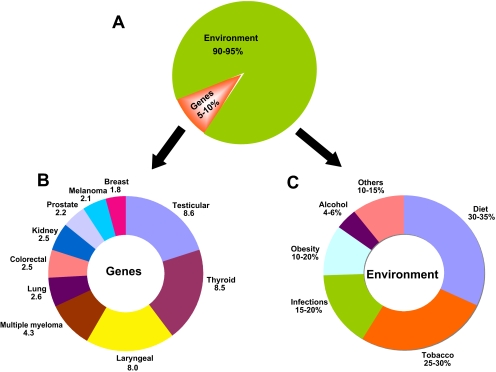
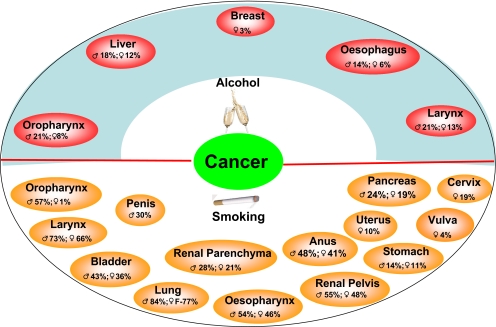
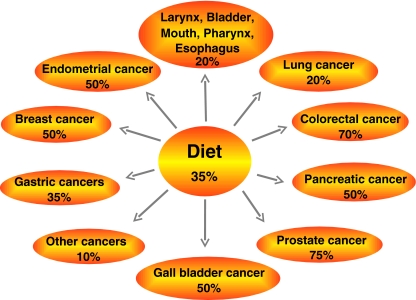



Share